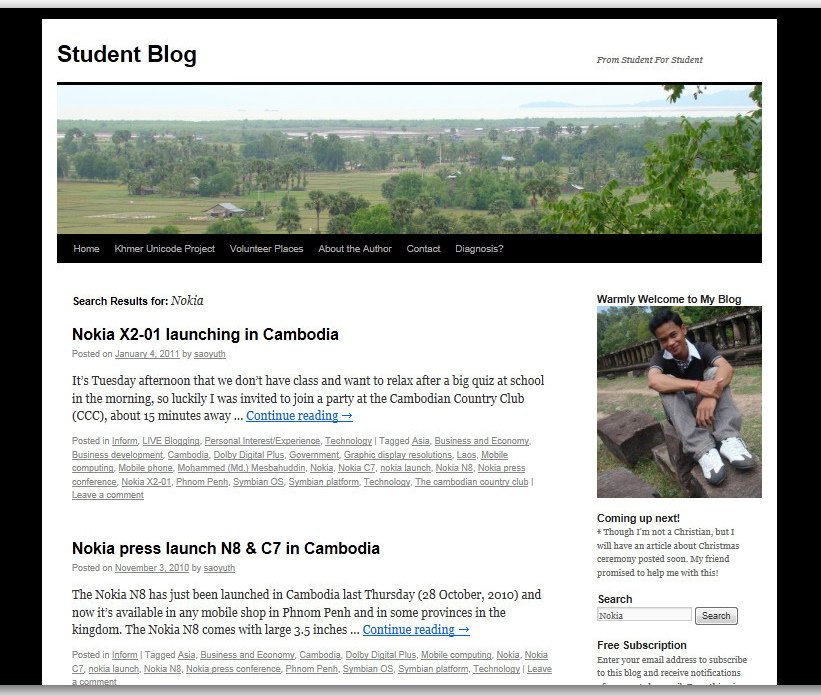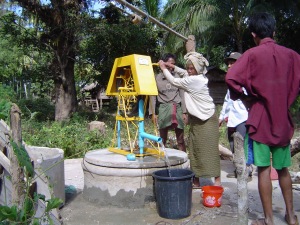Four students from RUA (the Royal University of Agriculture) tell Lift why they chose to study agriculture and give us their thoughts on what needs to be done to improve the sector.
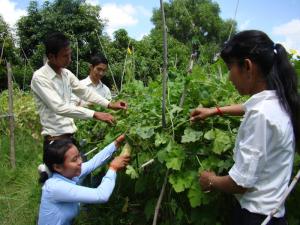
Group photo of 4 RUA students who join our discussion / by: Koam Tivea
DISCUSSION
Why did you choose to study agriculture? What do you plan to do when you get out?
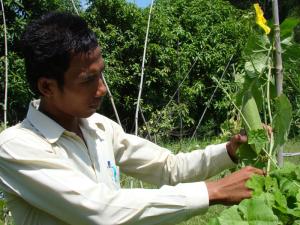
On Seyha, a student from Royal University of Agriculture (RUA) major in Agronomy / by: Koam Tivea
Dara: I decided to study agriculture because I saw the possibilities within the job market in Cambodia’s agriculture sector. Because of the size of the industry, agriculture offers more opportunities than majors like accounting, business and economics.

Moeung Bophayanika, a student from RUA major in Agronomy / by: Dara Saoyuth
Seyha: I chose to study agriculture because my parents are farmers. I can apply what I’ve learned in school to the real world by working with farmers through companies or organisations that focus on agriculture. I can introduce new techniques to the farmers living in rural areas, who are still using traditional techniques, and help them improve their lives by producing a higher-quality grain. If agriculture doesn’t develop, the county won’t develop either.
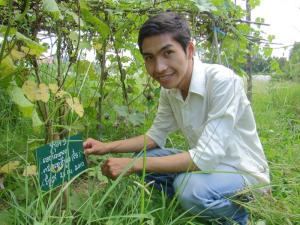
Rem Chandara, a student from RUA major in Agronomy / by: Koam Tivea
Do you think that you can get a good job with good pay when you graduate? What sort of job do you want to get?
Seyha: Most students graduating from RUA, especially in rural development, are working for NGOs. Students who study agronomy can work for companies such as those owned by Mong Reththy and Ly Yong Phat.

Tha Sokunthear, a student from RUA major in Agricultural Economic and Rural Development / by: Koam Tivea
Nika: We can also work in the government or, for those who like teaching, they can work in the University of Agriculture.
Dara: If students have relatives or friends who can help them find jobs with the government, they will be able to get the high pay and a high position. However, when working with the government, we don’t work directly with the people like we would with an NGO.
What changes need to be made within Cambodia’s agriculture sector to improve it?
Dara: The first change should start with the farmers themselves. It’s their responsibility to improve themselves. They should not just wait for another person to help them. They need to learn the techniques from the good farmers around them.
Seyha: Firstly, we have to improve equipment like irrigation systems. Then farmers won’t have to spend money on pumping water into their fields. Secondly, farmers often don’t know how to find a market for their goods because there is a middleman who buys their products and sells them at the market. The farmers gets a bad price while the middleman takes a hefty portion of the profits. I want people to form communities, and when they buy something, buy it together. For example, if a village wants to buy 50 bags of fertiliser, they can do it together and save time and money. They can also sell their products together so the buyers cannot pay them a low price. The third thing we need is more processing companies in our country. That way we can transform our goods from raw materials to finished products, which we can export to foreign countries for more money.
Many organisations say farmers are resistant to changing their methods. What are the difficulties and what did you do to convince these people that the new practice is the best?
Dara: If we just go to the farmers and tell them to change they have no reason to believe us. We need to set up a demonstration plot to show farmers or choose a model farmer who wants to improve his or her techniques. When it proves that it is the best technique and beneficial to their production, other farmers will start to follow.
Do you think that cash crops such as rubber and cassava are a good choice for the use of Cambodian land?
Dara: I think for businesspeople, they don’t think about how to use soil sustainably. They think that rubber is planted for business and sale, but they don’t think of how the soil will be ruined. When we plant only one kind of crop, it will take out all of the nutrients.
Nika: Many companies are growing cassava, which takes a lot of nutrients from the land and doesn’t give any back so the soil will be destroyed one day.
Do you think that there will be problems with many people growing commercial crops and not enough food crops?
Dara: I think there will be problems with more people growing commercial crops to get power.
Nika: Commercial crops are usually grown on concession land in places like Kratie, Mondulkiri and Ratanakkiri, while food crops are mostly grown in Battambang, Pursat and Takeo. Therefore, I don’t think it causes problems.
Dara: However, now that rubber from Vietnam has been introduced and can be grown in any kinds of soil it will likely impact the food security in Cambodia.
Do you know what the value chain is? Do you know that many times rice has been sent to Vietnam and Thailand, who return it to Cambodia for sale after it has been processed? I want to know what you think of processing in Cambodia.
Dara: I think the government is paying more attention to investment. I believe that in the future Cambodia will improve since there are more and more investments in the Kingdom. Moreover, many students have had a chance to study abroad, so that they can bring knowledge of processing to Cambodia. With this, Cambodia will be able to process more of its agriculture products on its own.
by: Dara Saoyuth and Koam Tivea
This article was published on Lift, Issue 28, July 21, 2010
